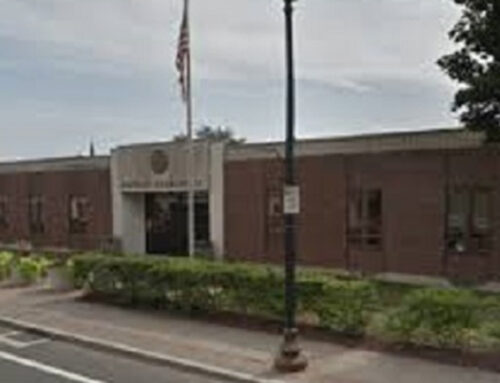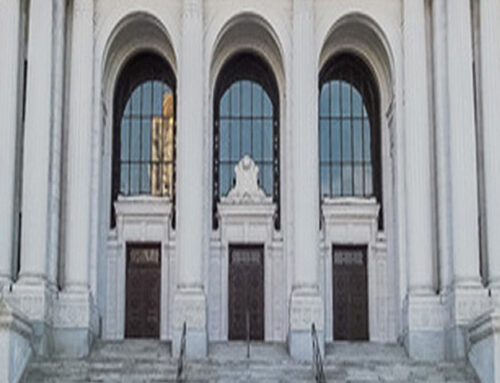In the criminal justice system of the United States, a bail bond is a financial guarantee given to a defendant who has been arrested and is awaiting trial. It is forfeited if the defendant does not appear for court proceedings.
In Connecticut, bail bondsmen are regulated by the state. The amount of bail will vary depending on the nature of the case against the defendant. Every bail bond must be approved by a judge of the court where the case is being heard. The defendant will also be required to post an amount of money as collateral. The amount of money that must be deposited will depend on various factors, such as charges filed against the person, court appearance record, etc.
So, here is a detailed evaluation of cash bonds and surety bonds in Connecticut! You will figure out the purpose behind each bail bond, their differences, and the condition of risk associated in case of failing to comply with the bailing system.
What is cash bail?
A cash bond is a sum of money, property, or signature given to guarantee a person charged with a crime (defendant) will appear in court for trial as per the judicial law. When a defendant is released on bail, the bail bond company holds the full amount of the bail until the court closes the case and issues a court order to refund the cash bond.
In Connecticut, cash bail bonds involve paying a non-refundable fee of 10 percent of the bail amount and collateral for the full bail amount. This type of bail bond is available in all towns and counties of the state.
Cash bail is more common in misdemeanor cases and takes less time, and it allows individuals charged with those offenses to avoid spending time in jail if they can post bail amounting to $10,000 or less. In most cases, the court will not require individuals to post cash bail unless they have previous felony convictions, are considered a danger to the community, or have financial difficulties that make them unable to pay.
Pulling money out of your savings account or mortgaging your home is not an easy task. If you are charged with a criminal offense and required to post bail, a cash bond will ensure your presence at court on time without any financial burden.
What is a surety bail?
Surety bonds, also known as collateralized bail arrangements (CBCAs), typically provide a financial guarantee to the court that the defendant will appear at all scheduled court hearings and remain law-abiding while out on bail. It is a written promise signed by the defendant or someone acting on his or her behalf to pay an amount set by the court.
There are three types of surety bonds:
- License and permit bonds- These encompass professional personnel such as Auto dealers, licensed contractors, and freight brokers to work legally.
- Contractor bonds- It is likely required for people or firms working on government-funded construction projects or public contracts. Construction, bid, and upkeep bonds are examples of these.
- Court bonds- Several courts, such as probate and judicial bonds, may sign up for these bonds.
The surety bond is usually backed by collateral, such as real estate and vehicles. In some cases, the bonding agency will accept collateral from individuals, such as savings and checking accounts or even cash. The non-refundable fee charged by the bondsman is used to cover the cost of posting a bond as well as any court costs associated with processing a bail bond.
Bondsman also provides a guarantee of appearance in court which can be beneficial in situations where defendants are unable to post bail.
A bail bond guarantees that they will show up for their court date and that they will not flee the jurisdiction before their case has been heard and adjudicated.
They form an important part of a criminal justice system that ensures defendants do not abscond before trial. Besides, bail bonds are popular among safe drivers as they do not need money upfront for posting bail.
A person may opt for bondsman bail over cash bail due to its convenience and safety.
Difference Between a Cash or Surety Bond
A cash bail is between two people, while a surety bond is between a third party (the surety company) and the defendant.
A cash bond involves only the payment of money and is held as collateral till the case is solved. This financial bail often serves as a pretrial penalty for failure to appear in court or as a form of punishment for a crime.
A surety bond, on the other hand, refers to any party who guarantees the performance of a debt or obligation — usually, this means financial institutions like banks but also companies such as insurance firms and bond underwriters.
It involves both money and collateral; A surety bond is like an insurance policy achieved by anybody or any company that puts up the money or collateral on behalf of the principal. So, the premium charged by the surety company protects it from any losses if the defendant does not appear in court.
Additionally, surety bonds require additional paperwork and may cost more than cash bonds, but both types of bonds are valuable tools when it comes to securing funding for your project.
Cost Considerations for Cash Bond And Surety Bond in CT
Cash bond costs are typically a percentage of the bail amount, with rates generally starting at 10%. There are some exceptions to this rule, such as for defendants charged with certain violent crimes.
In these cases, cash bonds can range anywhere from 25% to 100%, while Surety bond amount rates start around 1-15% depending upon your financial statement, assets, and credit history.
Can You Get Bonded with Bad Credit?
There are instances where people with bad credit can get surety bonds. It all relies upon the type of bond and credit issues you are facing. For instance, you are good to go with license and permit bonds when facing bad credit. On the other hand, contract bonds don’t fall under this category.
Who’s at Risk With a Cash Bond vs. a Surety Bond?
Applying for bail can be at risk when the following cases occur:
If the defendant skips the court session, he may lose all cash bail amount as a penalty! So, anyone, whether the defendant or some other family person who posts for cash bail, is at 100% risk. Thus, the responsibility lies on the members of posting cash bail itself!
However, if a defendant doesn’t show up for court but makes all of his/her payments, the bail bond company will reimburse the bail amount and any fees incurred for a court appearance. This provides assurance that the person won’t fail to appear without incurring financial hardships.
When speaking of surety bond risk, it is divided in terms of parties taking part in the bailing process. For a value of 10% premium, a bondsman will take care of the full bail amount. To minimize certain risks, the company may sign for the inherited property as collateral. So, the defendant may be at risk, too, in case he or she runs away!
But! It’s noteworthy that bail bondsmen are at greater risk as compared to the surety company. They are the key source of the full bail amount and will lose all the money depending upon the case. It is due to the fact that both these parties have a working history and trustworthy connections.
Professional Bail Bond Company in CT(Connecticut)- Bottom Line!
There are a number of factors that must be considered when choosing the right bond company for your bail bond needs. These include the type of bond required, the amount of coverage, the license of the Connecticut Insurance Department or the status of the company.
Carrying out some research before making a decision is key. That’s why at XYZ Bail Bond Company, we offer professional bail bond services at affordable percentage rates in CT. Our consultants can help you decide the best option for your unique situation and offer bonds underwritten by an insurance company.
How do we carry the bonding process work for you?
With a handful of basic steps, you can get your bonding process completed. Here’s how!
- Once you have completed the application and submitted it to our underwriters, they will assess your eligibility for the bond.
- If you are approved, a free quote will be emailed to you. An indemnity agreement will also be provided outlining the specific responsibilities of both yourself and the surety on your behalf.
- Once everything is signed and accepted, payment can be made online using a credit card or PayPal. You will then receive an email with confirmation that your bond has been processed. The original surety bond document(s) may also arrive in the mail, depending on how fast we process them!
With our experienced team, you’re sure to find the perfect solution for your needs. Secure Your Freedom Fast with Best Bail Bond Service in Connecticut!





Leave A Comment